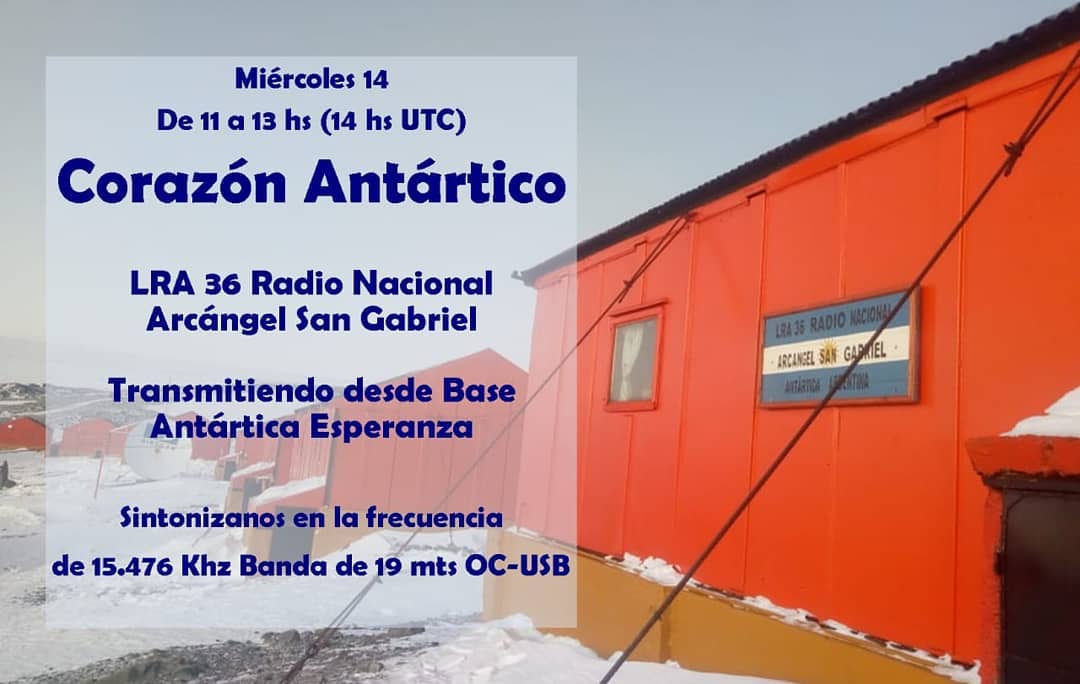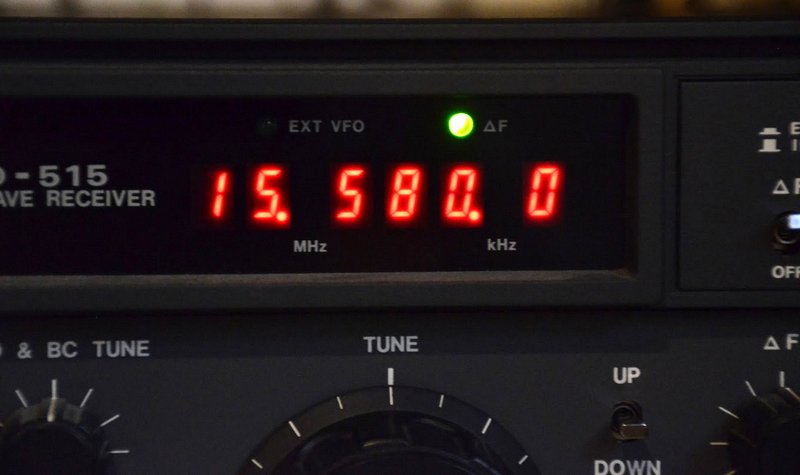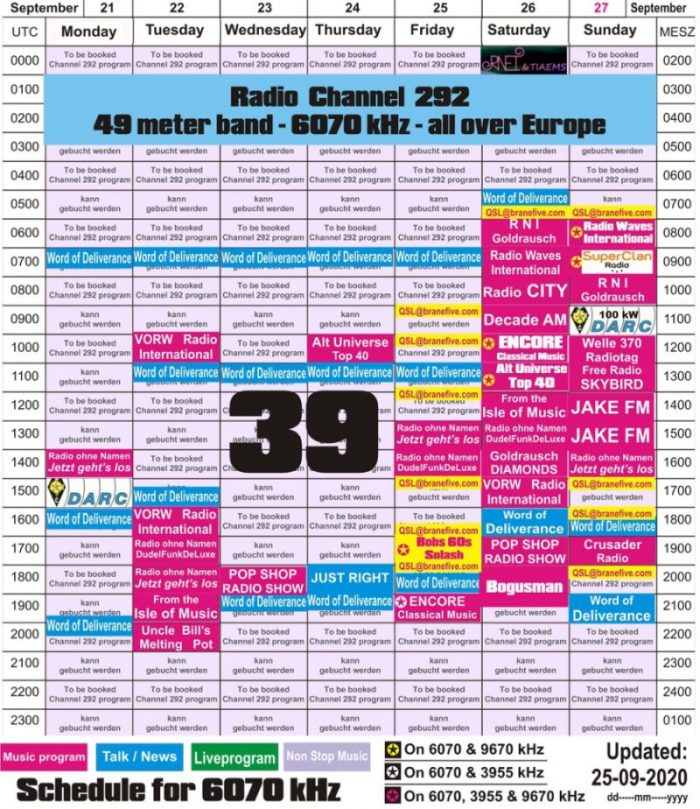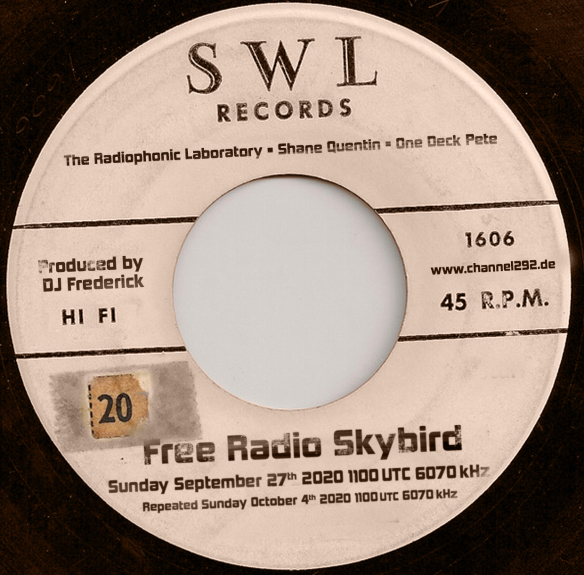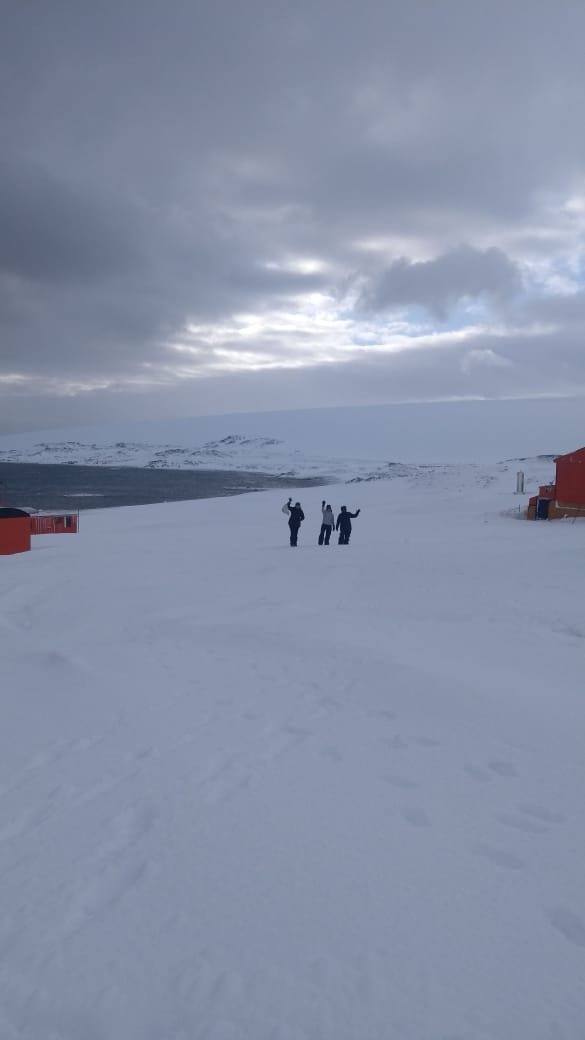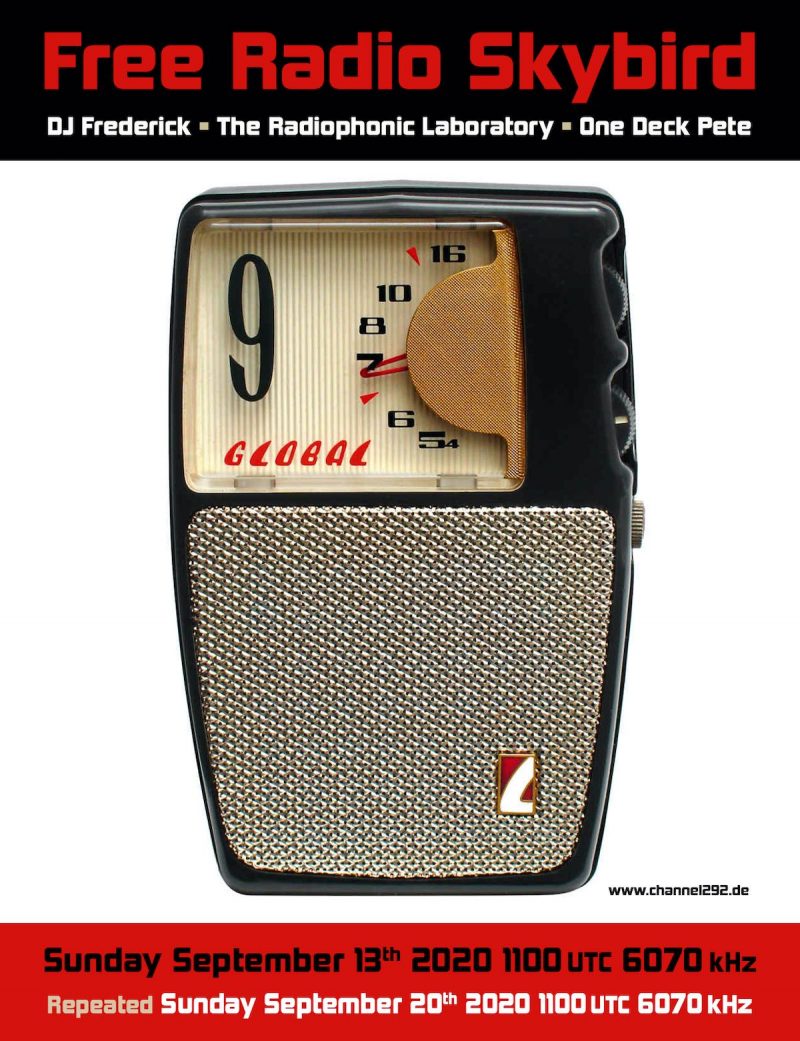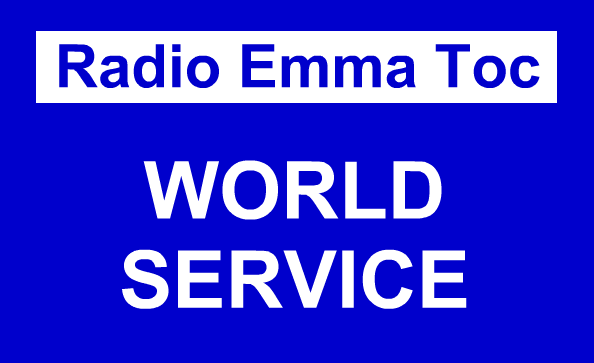
(Source: Jim Salmon, Radio Emma Toc)
RADIO EMMA TOC WS SCHEDULE SUMMARY – SEPT. 2020
Programme Contents – a look at – two documentaries about 1920’s radio – ‘Radio Sings’ & ‘Sounds From The Ether’, the BBC Antarctica Midwinter broadcast, Radio Caroline memories, RadioShack’s ‘Sounds of SW’, & hello to listeners.
Ways to listen… Radio Emma Toc World Service – programme no. 5 – September 2020
Check out Radio Emma Toc online, or visit the World Service page
You can listen to our shortwave or FM broadcasts via our relay partners as follows:
WRMI – Radio Miami International – 9955kHz – covering Latin America (& beyond)
Tuesdays 18:00 EasternTime / 22:00 UTC
WRMI – Radio Miami International – 9455kHz – covering Eastern North America (& far beyond)
Sundays 21:00 EasternTime / 01:00 (Monday) UTC
Unique Radio Australia – online – covering Australia (& beyond)
Saturdays 17:30 AEST / 07:30 UTC and Sundays 17:30 AEST / 07:30 UTC
World FM – 88.2MHz / 107.6MHz – covering Tawa, Marahau & Stoke, New Zealand
Sundays 22:00 NZST / 10:00 UTC and Thursdays 16:30 NZST / 04:30 UTC
(every other week – alternating with HRI – Hobart Radio International)
Channel 292 – 6070kHz – covering Europe (& beyond)
Friday 4th September 20:00 UTC & Saturday 19th September 19:00 UTC
Scandinavian Weekend Radio – 6170kHz / 11690kHz / 1602kHz / 94.9MHz
covering Finland & Europe – Saturday 3rd October 05:00UTC
Happy listening! If you are outside the transmitter coverage areas, why not listen via the broadcasters’ online services. Website details for the above stations are listed on our own website here – www.emmatoc.org/worldserviceschedule
If you don’t have access to receivers & aerials you can try using an online SDR receiver – ve3sun.com/KiwiSDR – experience the enjoyment of tuning around shortwave from worldwide locations online.
We are happy to issue eQSLs for reception reports sent to – [email protected] – & will gladly include for online reports. If using an online SDR, please give us the SDR location.
If any stations wish to relay our programme a download link is available on our website. Please advise us of times & dates so we can publicise in our schedule.
Finally – please note – we are still able to take requests for our November Global Request Show. Email us with your song choices!
Thank you!
Jim Salmon – Radio Emma Toc
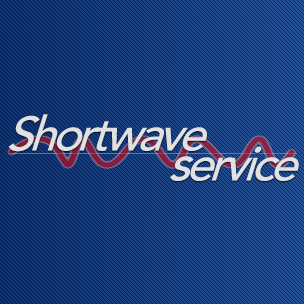 Many thanks to SWLing Post contributor, Adrian Korol, who shares the following announcement from RAE’s German language service:
Many thanks to SWLing Post contributor, Adrian Korol, who shares the following announcement from RAE’s German language service:
